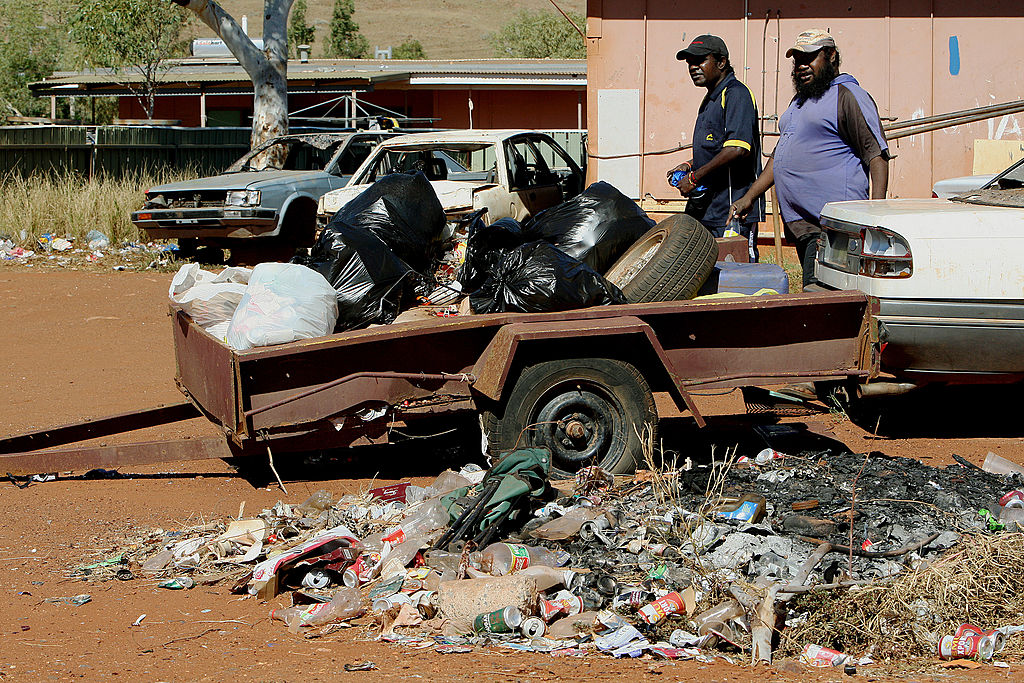 The August 2016 decision of the Federal Court to award $3.3 million under the Native Title Act to traditional owners who were dispossessed of their land has once again made indigenous affairs a hot topic.
The August 2016 decision of the Federal Court to award $3.3 million under the Native Title Act to traditional owners who were dispossessed of their land has once again made indigenous affairs a hot topic.
But land justice is a deeper concept than offering indigenous people piecemeal monetary compensation. We need a permanent solution that immediately improves outcomes for indigenous Australians across a variety of indicators such as life expectancy, employment, and incarceration rates. Aboriginal people have a life expectancy about 10 years less than non-indigenous Australians, are more likely to be unemployed and are 13 times more likely to be imprisoned.
The current native title system tends to approach the problem by prescribing “traditional owners” who are often senior elders within a group of Aboriginals. Moreover, native title can only exist to the extent that there is no superior title to the land (for example, by mining companies or farmers). In practice, its scope is limited.
The effect of the present system has been to hamper the entrepreneurial talent of indigenous people living in remote communities. By now, we could have seen many Aboriginal millionaires who could have helped their communities in a far more effective manner than inefficient government programs ever could.
Instead, remote communities today are bastions of poverty.
In the 1967 referendum, a resounding majority of Australians voted to give the federal government power to make laws with respect to Aboriginal people, wherever they lived in Australia, and to include indigenous people in national censuses. The change aimed to foster a coordinated approach that bypassed the divergent policies of individual states.
Today, however, it seems as if less Commonwealth imposed uniformity would have been better. While the referendum was excellent at achieving symbolic outcomes, it has allowed the federal government — for more than two decades since the second Mabo case — to avoid taking the hard decisions that would lead to progress. In particular, legislation limiting indigenous Australians to communal ownership of land must be abolished.
Giving individuals private ownership of land (a capital asset) is one of the proven means of generating wealth. Freehold title would allow aborigines collateral for investments or housing.
If an individual property rights framework were set up, groups of Aboriginals could still collectively join together and retain cultural elements. At the same time, those who wished to integrate into the mainstream economy would find it easier to do so.
The Commonwealth government should immediately cede control of the bulk of its powers relating to indigenous Australians to the states. Decentralised federalism is the surest way to accommodate the diverse range of local circumstances that must be taken into account when formulating indigenous land rights policy.
The states should conduct surveys of 90 per cent of Crown land, and after consultation with historical residents and traditional owners, should randomly allocate each indigenous person over 18 years with a voucher that entitles them to an equal plot of this land (for example, one square kilometre).
As some will have received land not suitable for their individual purposes, the states should then manage a barter system to allow Aboriginals to trade vouchers until they reach suitable agreement among themselves. The land they now own is freehold, and they should enjoy the same rights as any other Australian.
The Aboriginal participants must agree, however, to not launch any future legal claims trying to claim more land. Also, the constitution should be amended so that all reference to race powers is deleted and all laws specifically dealing with indigenous Australians should be repealed. Henceforth, they must be treated the same as other Australians and must not be provided with any special privileges or race-based quotas.
Handing back government land to the descendants of the first Australians would significantly reduce the scope of government and remove much of the bureaucracy that has benefited from the native title “industry.” The cost savings achieved would mean income taxes could be reduced for everyone. Second, it would finally give Aboriginal Australians an improved form of legal title to use as they see fit. The paternalist mentality driving current indigenous policy would be ended, and there is potential for a major macro boost to the economy.
My proposal avoids continuing indefinitely the blame game for poor outcomes and unleashes the productive force of capitalism.
Real land rights are what all non-indigenous peoples enjoy. Why should Aboriginal Australians be any different?
Sukrit Sabhlok is a Young Voices Advocate and Masters in Politics candidate at Monash University in Melbourne.
Got something to add? Join the discussion and comment below.
Get 10 issues for just $10
Subscribe to The Spectator Australia today for the next 10 magazine issues, plus full online access, for just $10.

























Comments
Don't miss out
Join the conversation with other Spectator Australia readers. Subscribe to leave a comment.
SUBSCRIBEAlready a subscriber? Log in